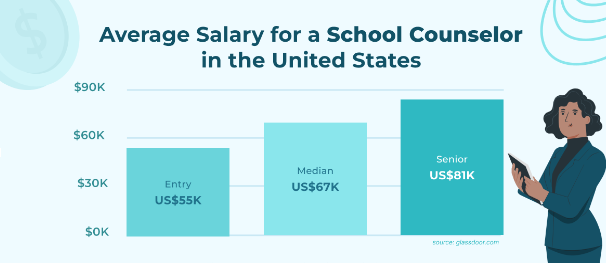Understanding school counselor: What You Need to Know

Are you curious about the school counselor? Understanding the factors that influence a school counselor’s salary can help you make informed career decisions. In this blog post, we’ll explore the key elements that affect school counselor salaries, including education, experience, location, and more.
Understanding School Counselor Salary: What You Need to Know
School counselor salary varies depending on factors like education, location, and experience. If you’re considering a career as a school counselor, understanding these factors can help you plan for your future. This blog will explore everything you need to know about how school counselor salaries are determined and how they may grow over time.
Whether you’re a student planning your career or a counselor looking to negotiate better pay, this guide provides helpful and updated insights. Let’s dive in to learn about school counselor salaries and what impacts them the most.
What Does a School Counselor Do
A school counselor plays an important role in helping students succeed in school and life. They provide support for academic goals, mental health, and career planning. These professionals also assist teachers and parents in creating a positive learning environment.
Daily tasks often include meeting with students, creating personalized plans, and organizing workshops. School counselors must also manage administrative duties, like keeping records and coordinating with external support agencies.
Understanding the role of a school counselor is important when exploring their salary. Their wide range of responsibilities directly impacts their earning potential and career growth opportunities.
Educational Requirements for School Counselors
To become a school counselor, you need a solid educational background. Most school counselors start with a bachelor’s degree in psychology, education, or a related field. After that, they complete a master’s degree in school counseling.
Some states require additional certifications or licenses. These often include supervised work experience in a school setting. The time and effort invested in education often reflect on the school counselor’s salary.
Continuous learning, like attending workshops or earning extra certifications, can also boost salary potential. Staying updated on the latest trends in counseling is key to career success.
How Experience Impacts School Counselor Salaries
Experience is one of the biggest factors in determining a school counselor’s salary. New counselors often start at lower pay, but salaries increase with experience.
With a few years of work, counselors can move into higher-paying roles or specialize in areas like mental health or career guidance. This expertise often leads to better opportunities and salary growth.
Many schools reward long-term counselors with additional benefits like bonuses or leadership roles. Experience not only boosts salary but also builds credibility in the field.
Conclusion
School counselor salaries depend on many factors, like education, experience, and location. Counselors play a vital role in schools, helping students succeed in their academic and personal lives. While starting salaries may seem lower, the earning potential increases with time and expertise.
If you’re planning to become a school counselor, remember that the career offers more than just money. It provides the chance to make a positive difference in students’ lives. With the right education and skills, you can enjoy a fulfilling career with good pay and growth opportunities.
FAQs
Q: What is the average salary of a school counselor?
A: The average school counselor salary in the U.S. is around $60,000 per year, but it varies based on location and experience.
Q: Do school counselors earn more with experience?
A: Yes, experienced school counselors often earn higher salaries and may qualify for leadership roles or bonuses.
Q: Does location affect a school counselor’s salary?
A: Absolutely! Urban areas and states with bigger school budgets usually pay more, but living costs can also be higher.
Q: Is a master’s degree required to become a school counselor?
A: Yes, most states require a master’s degree in school counseling, along with certifications or licenses.



